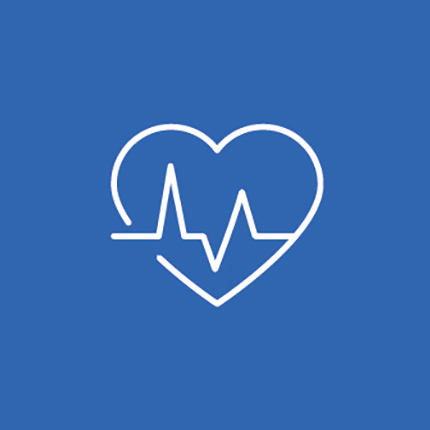Are Heart-Health Screenings the Cardiovascular Crystal Ball?
Jan 5, 2021What’s in your future? Heart-health screenings can’t give you the winning lottery numbers, but they can provide numbers that may help save your life. You can lower your risk of cardiovascular disease (CVD) simply by managing your health behaviors and your risk factors, which are measured by heart-health screenings.
Cardiovascular Disease Health Behaviors and Risk Factors
- Diet
- Physical activity
- Smoking
- Body mass index (BMI)
- Blood pressure
- Total cholesterol or blood glucose.
You can control the behaviors—diet, physical activity and smoking—on your own. As far as the other risks, you will need help from your healthcare provider, who may collect information and conduct or request screening tests during regular visits. The results of these basic tests tell you what changes you can make now to help avoid developing a serious cardiovascular disease down the road.
Key Screening Tests for Cardiovascular Disease
- Blood Pressure - Blood pressure is one of the most important screenings because high blood pressure, which greatly increases your risk of heart disease and stroke, usually has no symptoms so it can’t be detected without being measured. If your blood pressure is below 120/80 mm Hg, be sure to get it checked at least once every two years, starting at age 20. If your blood pressure is higher, your doctor may want to check it more often. High blood pressure can be controlled through lifestyle changes and/or medication.
- Fasting Lipoprotein Profile (cholesterol) - You might have a fasting lipoprotein profile taken every four to six years, starting at age 20. This is a blood test that measures total cholesterol, LDL (bad) cholesterol and HDL (good) cholesterol. You may need to be tested more frequently if your healthcare provider determines that you’re at an increased risk for heart disease or stroke. Like high blood pressure, often cholesterol can be controlled through lifestyle changes and/or medication.
- Body Weight - Your doctor may ask for your waist circumference or use your body weight to calculate your body mass index (BMI) during your routine visit to determine if you’re at a healthy body weight and composition. Being obese puts you at higher risk for health problems such as heart disease, stroke, atrial fibrillation, congestive heart failure and more.
- Blood Glucose - If you’re overweight and you have at least one additional cardiovascular risk factor, your healthcare provider may recommend a blood glucose test. High blood glucose or "blood sugar" levels put you at greater risk of developing insulin resistance, prediabetes and type 2 diabetes. Untreated diabetes can lead to many serious medical problems including heart disease and stroke. Your healthcare provider may also measure glycated hemoglobin A1c levels (A1c %) in your blood to screen for type 2 diabetes. An A1c level of 6.5% or higher is used to define diabetes.
If you’ve been diagnosed with a cardiovascular condition such as heart failure or atrial fibrillation, if you have a history of heart attack, stroke or other cardiovascular events, or a family history of cardiovascular disease, your healthcare provider will probably require additional or more frequent testing.
Do yourself a favor by looking into your cardiovascular crystal ball by managing your health behaviors, getting your heart-health screening tests and taking steps to avoid this disease.
Source:
American Heart Association



